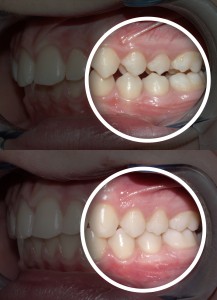When Is Jaw Surgery Required?
Some people consider jaw surgery, or orthognathic surgery, to improve their jawline or facial symmetry. For other people, jaw surgery is medically necessary. In short, if you have a condition that severely impedes the function of your jaw, you may need to have surgery. Here’s a more in-depth look at when jaw surgery is required.
Improper Bite Due to Bone Structure
Retainers, braces, and tooth extraction are the first methods any dentist considers to correct a malocclusion, or improper bite. However, if your teeth are severely misaligned or the malocclusion is due to your jaw bone structure, surgery may be a better solution. Jaw surgery can correct the following bite problems:
- Overbites
- Underbites
- Crossbites
- Open bites
Protruding, Receding, or Asymmetrical Jawline
When the upper and lower jaws don’t align, this means the bones developed more in some areas than others.
- If your lower jaw protrudes, you may have mandibular hyperplasia (overdevelopment of the lower jaw) or maxillary hypoplasia (underdevelopment of the upper jaw).
- If your lower jaw recedes, you may have maxillary hyperplasia (overdevelopment of the upper jaw) or mandibular hypoplasia (underdevelopment of the lower jaw).
- An asymmetrical jawline can result from several developmental syndromes that limit growth on one side of the jaw or cause overgrowth in certain areas.
All of these conditions require recontouring or jaw surgery. A protruding, receding, or asymmetrical jawline may be apparent from a young age, but patients must wait until adulthood when the jaw has finished growing to pursue orthognathic surgery. Children can wear braces, retainers, or headgear to improve the problem until surgery becomes an option.
Facial Trauma and Injury
If you break your jaw or damage your teeth and gums in a sporting injury, car accident, or another traumatic event, surgery may be the best option for restoring jaw functionality and a symmetrical face shape.
Chronic Jaw Pain
The temporomandibular joint, or TMJ, is the hinge between the upper and lower jaws. You can feel the joint by placing a finger in front of your ear and opening your mouth. The movement you feel should be smooth and uninterrupted, though occasional popping is also no cause for concern. However, if your jaw locks or feels painful when you open your mouth wide, you may have temporomandibular joint dysfunction (TMD), which is associated with swelling and tissue deterioration.
At Evanson DDS, we always attempt noninvasive options first before recommending jaw surgery. In some cases, TMD can be treated with a mouth guard, retainer, or other orthodontic appliances. But in severe situations, jaw surgery may be necessary to restore jaw function and eliminate your pain.
Jaw Tumors and Cysts
The mouth and jaw are composed of several tissue types, including muscle, bone, glands, and mucosa. This makes your face more susceptible to tumors and cysts than other parts of your body, especially if you smoke or drink alcohol.
If growths form in and around your jaw, it may be necessary to surgically remove them to prevent malocclusions, deformities, and other problems. If a tumor or cyst is deemed cancerous, you may also need to undergo chemotherapy and radiation.
Find Out if Jaw Surgery is Required with Help from Dr. Evanson
If jaw problems make eating or speaking difficult, or you’re in constant pain, set up a free consultation at Evanson DDS. We’ll review your medical and dental history, examine your teeth and gums, take X-rays, and complete a TMJ exam. We will then explain whether we think jaw surgery is required to correct the problems you’re facing. Depending on the extent of the procedure you need, we will either treat you here in our office or refer you to a specialist in the Denver area.
There’s no need to suffer from jaw problems when you can pursue oral surgery to set things right. Schedule your free consultation with Dr. Evanson by contacting us online or calling our Parker office at (720) 409-0008 today.
Leave a reply →






